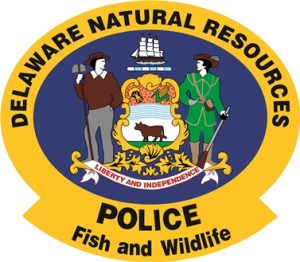Delawareans choose electric vehicles, save 830,000 pounds CO2 per year
DOVER – The success of DNREC’s Clean Transportation Incentive Program and high public demand for participation in it led the Division of Energy & Climate to announce today that an additional 100 rebates are being offered for electric and plug-in hybrid electric vehicles purchased or leased in Delaware.
Launched in July 2015, the Clean Transportation Incentive Program has exceeded its goal of 100 vehicle rebate applications from Delaware drivers of electric and plug-in hybrid electric vehicles. In light of the program’s high demand, 100 more rebates at $2,200 each are now available.
“The vehicles that have been purchased through the rebate program so far represent a savings of 830,000 pounds of carbon dioxide per year that would have been emitted into our atmosphere if these drivers had chosen traditional gasoline cars,” said Climate Section Administrator Susan Love, Division of Energy & Climate.
Plug-in hybrid electric vehicles, which have a back-up gasoline engine, and battery electric vehicles, which run solely on electricity, have more reliable and typically lower fuel costs compared to gasoline. In addition, battery-electric vehicles produce no tailpipe pollution, leading to cleaner air and a lower carbon footprint.
“Transportation accounts for roughly a third of greenhouse gas emissions in the state. Delawareans are embracing electric, plug-in hybrid electric and alternative fuel vehicles as a cleaner, cost-effective way to get around,” Love said. “That means a lot for our public health, our natural resources and our efforts to mitigate climate change.”
Rebate-eligible electric vehicles include the Nissan Leaf, Ford Focus Electric, Ford Fusion Energi, Chevy Volt, BMW i3, Tesla Model S and other options. Battery-electric vehicles such as the BMW i3, Chevy Spark and Nissan Leaf can drive about 80 miles on one charge, making them a viable option both for frequent local travel and some commutes.
Drivers in all three counties have applied for and received Delaware clean vehicle rebates, and dealerships across the state have partnered with DNREC to help inform and engage Delawareans. Partnering dealers are: AutoTeam Delaware, Wilmington; Diver Chevrolet, Wilmington; Sheridan Ford, Wilmington; Sheridan Nissan, New Castle; Bayshore Ford, New Castle; Porter Auto Group, Newark; Willis Chevrolet Buick, Smyrna; Willis Ford, Smyrna; and I.G. Burton, Milford.
Clean Transportation Grants and Rebates
In addition to vehicle rebates, the Delaware Clean Transportation Incentive Program also includes grant and rebate opportunities for projects that reduce greenhouse gas emissions in Delaware by promoting propane, electric and natural gas vehicles – collectively known as alternative fuel vehicles – and related infrastructure. Alternative fuel vehicles can meet the needs of drivers of all types of vehicles, from everyday four-door sedans and pick-up trucks to vans, dump trucks and heavy-duty tractor trailers.
In addition to state rebates and funding opportunities for vehicles and charging/fueling equipment, manufacturer rebates and federal funding opportunities and tax incentives also may be available.
For more information about funding available through Delaware’s Clean Transportation Incentive Program, visit de.gov/cleantransportation.
Fueling the Future Conference and Ride-and-Drive Event
Interested transportation professionals and state partners can learn about and experience alternative fuel vehicles firsthand at Fueling the Future: Clean Transportation for a Greener Delaware, a one-day conference and ride-and-drive event on Tuesday, May 24 at Dover Downs Hotel and Casino. Expert panels will discuss the mechanics and benefits of alternative fuel vehicles for businesses, fleets, shipping and other transportation needs. In the afternoon ride-and-drive component, attendees will have the opportunity to drive alternative fuel vehicles, and ride in alternative fuel commercial vehicles.
To register, visit de.gov/fuelingthefuture. Registration is open through Wednesday, May 11.
Delaware’s Clean Transportation Incentive Program is made possible through Delaware’s participation in the Regional Greenhouse Gas Initiative (RGGI). RGGI is a market-based emissions trading program designed to reduce emissions from the electricity generation sector. Delaware’s proceeds from RGGI are invested in energy efficiency, renewable energy, emissions reductions programs and programs that benefit energy consumers. In addition to providing funds, RGGI encourages innovation, growing a clean energy economy and creating green jobs.
Media Contact: Joanna Wilson, DNREC Public Affairs, 302-739-9902
Vol. 46, No. 140
